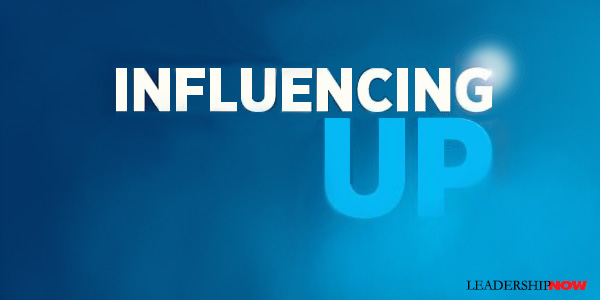 |
 |
07.30.12

Influencing Up
IF you’re trying to make a significant contribution you will have to influence people you can’t control. In other words, you will need to influence up.
Cohn and Bradford deal with all of these issues. Beside any self-examination you will need to do, you will need courage to deal with two influencing up issues: First, the impact of large power differentials. Obviously, the greater the power differential between you and the powerful person, the more difficult influence becomes. Unfortunately, this kind of large power gap tends to produce dysfunctional behavior for people on both sides of the equation. Relatively high-power people tend to overvalue their own contributions and undervalue others’, whereas those with less authority tend to overestimate higher-level individuals’ power and underestimate their own. Second, becoming a partner with high-powered people. Partner does not necessarily mean equals. It’s a matter of “joining with” not just “reporting to” and taking responsibility for developing the partnership. To do that you need a clear understanding of your boss’s world. Characteristics of this partnership are:
Just as leaders should ask themselves, “Why am I doing that?” so should junior partners ask themselves, “Why aren’t I doing that?” Not all bosses of course, are interested in the idea of influencing up and this is one area where the partnering mind-set really helps. You need to carefully examine the interests, power, knowledge, and agendas of every relevant individual, group, or organizational stakeholder—and determine who influences others. Although you might not be able to sway a powerful person, he or she might respond to someone else’s argument. Who has those connections? This complete analysis is critical for selling ideas or proposals, gaining backing for projects, neutralizing resistance, or otherwise making a difference. Building on the model they first presented in their book Influence Without Authority, Cohen and Bradford deal with challenges of power differentials and partnering and how to overcome them in a step-by-step, straightforward way.

Posted by Michael McKinney at 10:42 AM
|
BUILD YOUR KNOWLEDGE
 

How to Do Your Start-Up Right STRAIGHT TALK FOR START-UPS 
Grow Your Leadership Skills NEW AND UPCOMING LEADERSHIP BOOKS 
Leadership Minute BITE-SIZE CONCEPTS YOU CAN CHEW ON 
Classic Leadership Books BOOKS TO READ BEFORE YOU LEAD |